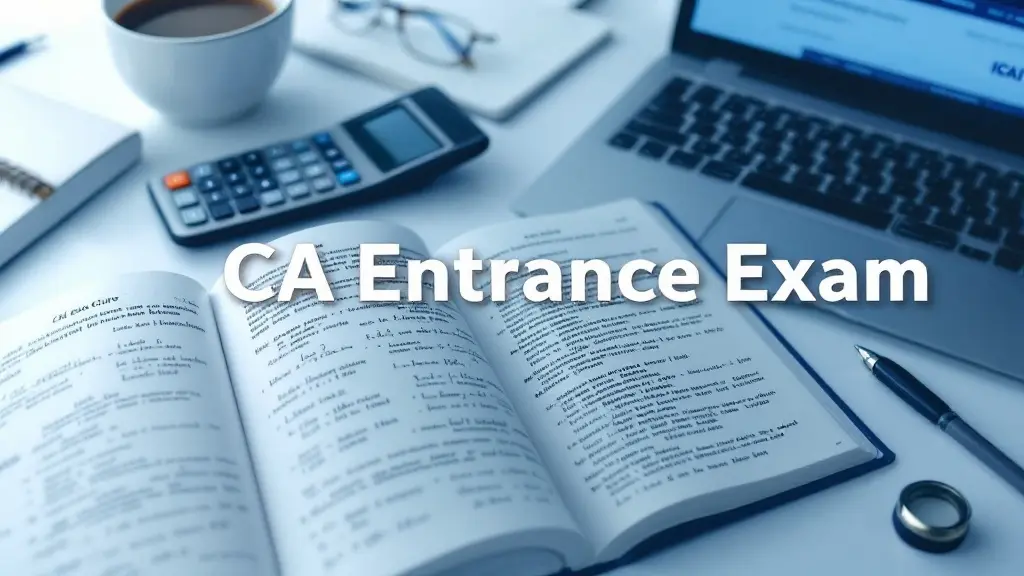CA Eligibility After Graduation: A Complete Guide for Aspiring Chartered Accountants
Table of Contents
Most Read
[fusion_dropcap class="fusion-content-tb-dropcap"]A[/fusion_dropcap]re you thinking about pursuing a career as a Chartered Accountant (CA) after completing your graduation? Becoming a CA is a prestigious and highly rewarding career choice that requires dedication, expertise, and a clear understanding of the eligibility criteria. In this blog post, we will walk you through the eligibility requirements, the process of becoming a CA after graduation, and everything you need to know to get started on this exciting career path.
What is Chartered Accountancy (CA)?
Chartered Accountancy is a professional course that trains individuals to provide financial, accounting, auditing, and taxation services to businesses and individuals. In India, the profession is regulated by the Institute of Chartered Accountants of India (ICAI), which sets the guidelines and examinations required for individuals to become CAs.
Can You Become a CA After Graduation?
Yes, you can pursue CA after completing your graduation. However, the route and eligibility criteria vary depending on the educational background you have. Let’s break down the different ways you can pursue CA after graduation and the requirements for each.
1. Eligibility Criteria for CA After Graduation
Graduates who wish to pursue CA have certain advantages, as they can skip some of the stages that a non-graduate student would need to go through. However, there are specific conditions they must meet to qualify for each stage of the CA course.
a. General Eligibility Criteria
- Completion of Graduation: You need to have a bachelor’s degree in commerce (B.Com), business, or a related field. Graduates with a non-commerce background (such as engineering) may also apply, but they will need to check if their specific qualifications meet ICAI’s criteria.
- Minimum Percentage: The minimum percentage requirement varies depending on your graduation stream. If you have completed your graduation in Commerce, you need at least 55% marks. For other fields, a minimum of 60% marks in graduation is required to qualify for direct entry to the CA Intermediate (IPCC) level.
b. Graduate Entry Route
Graduates with a recognized degree in commerce or a related discipline can enter the CA course directly at the Intermediate level, bypassing the CPT (Common Proficiency Test), which is usually required for non-graduates.
2. The CA Course Structure
The CA course is divided into three primary levels:
- Foundation Course
- Intermediate Course (IPCC)
- Final Course
Graduates who meet the eligibility criteria can directly start with the Intermediate (IPCC) level, saving time by skipping the Foundation stage. Let’s explore each stage in detail.
3. Steps to Become a CA After Graduation
Step 1: Register with ICAI
The first step in the CA journey is to register with the Institute of Chartered Accountants of India (ICAI). You must fill out the registration form for the CA Intermediate level after completing your graduation.
- Documents Required: Proof of graduation, a copy of your identity card, and passport-sized photographs are required for registration.
- Fees: Registration fees for the CA Intermediate level vary and must be paid as per ICAI guidelines.
Step 2: Clear the CA Intermediate Exam
Once registered, you need to clear the CA Intermediate exams. The CA Intermediate exam is conducted twice a year—usually in May and November.
- Subjects Covered: The Intermediate level consists of eight subjects, including accounting, taxation, auditing, and financial management.
- Exam Pattern: The exams are held in a combination of both theory and practical papers. You need to pass both groups of exams to move on to the next level.
Step 3: Article Ship (Practical Training)
After clearing the CA Intermediate exams, candidates are required to undergo a three-year practical training known as Articleship. This is a critical phase where you will work under a practicing Chartered Accountant and gain hands-on experience in auditing, taxation, accounting, and financial services.
- Registration for Articleship: You need to register for Articleship training with a recognized CA firm or a practicing CA.
- Training Duration: The articleship period is three years and should be completed under the supervision of a qualified CA.
- Stipend: During the articleship, you will receive a stipend that varies depending on the firm’s size and location.
Step 4: Appear for CA Final Exams
After completing the articleship, the next step is to sit for the CA Final exam. This is the final hurdle in the CA course, and passing this exam is essential to becoming a qualified Chartered Accountant.
- Subjects Covered: The CA Final course consists of advanced subjects related to accounting, auditing, and taxation.
- Exam Pattern: Like the Intermediate exams, the Final exams are divided into two groups, and you need to pass both to be eligible for membership in ICAI.
Step 5: Become a Member of ICAI
Once you have successfully passed your CA Final exams and completed your articleship, you can apply for membership with ICAI. After gaining membership, you are officially a Chartered Accountant.
4. Advantages of Pursuing CA After Graduation
Opting to pursue CA after graduation comes with several benefits. Here are some of the key advantages:
a. Skip the Foundation Level
Graduates who meet the eligibility criteria are exempt from the CA Foundation exam, saving a significant amount of time and effort. This allows them to directly enter the Intermediate level and focus on more advanced topics.
b. Faster Career Progression
By starting your CA journey at the Intermediate level, you can complete the entire course more quickly than those who start from scratch. Graduates who are eligible for direct entry can finish their CA within 2-3 years, depending on their exam schedule and articleship.
c. Industry Recognition and Financial Stability
Once you become a Chartered Accountant, you can enjoy excellent job prospects and career opportunities. Chartered Accountants are in high demand, both in India and abroad. They have the potential to work with top accounting firms, financial institutions, and multinational corporations.
5. CA Course for Non-Commerce Graduates
If you are a graduate from a non-commerce background, such as engineering, you are also eligible to pursue CA. However, you need to meet the 60% marks requirement in your graduation to enter the CA Intermediate course directly. For such graduates, certain subjects in the CA course, such as accounting and taxation, may be more challenging, but it is entirely feasible with dedication and consistent effort.
6. How to Prepare for the CA Exams After Graduation
Preparation for CA exams requires discipline, strategic planning, and consistent effort. Here are some tips to help you succeed:
a. Understand the Syllabus
Start by thoroughly understanding the syllabus and exam pattern for both the Intermediate and Final levels. Make a study plan that allocates sufficient time for each subject, especially the practical ones that require more effort.
b. Study Material and Resources
Refer to ICAI-prescribed study materials, previous year’s question papers, and mock tests to prepare effectively. Coaching classes and online resources can also be helpful in getting expert guidance.
c. Regular Practice and Revision
Practicing regularly and revising your concepts before the exams is key to success in CA exams. Focus on problem-solving, especially for subjects like accounting and auditing.
7. Final Thoughts
Becoming a Chartered Accountant is a prestigious achievement that can open up numerous career opportunities in finance and business. Pursuing CA after graduation is a smart and time-saving route, especially for those with a commerce background. With proper planning, dedication, and consistent effort, you can successfully navigate the challenging yet rewarding path to becoming a CA.
If you’re passionate about finance, taxation, and accounting, and you’re ready to take on the challenge, pursuing a CA after graduation could be the perfect career choice for you.
Visit Our Website : Accounting.in









